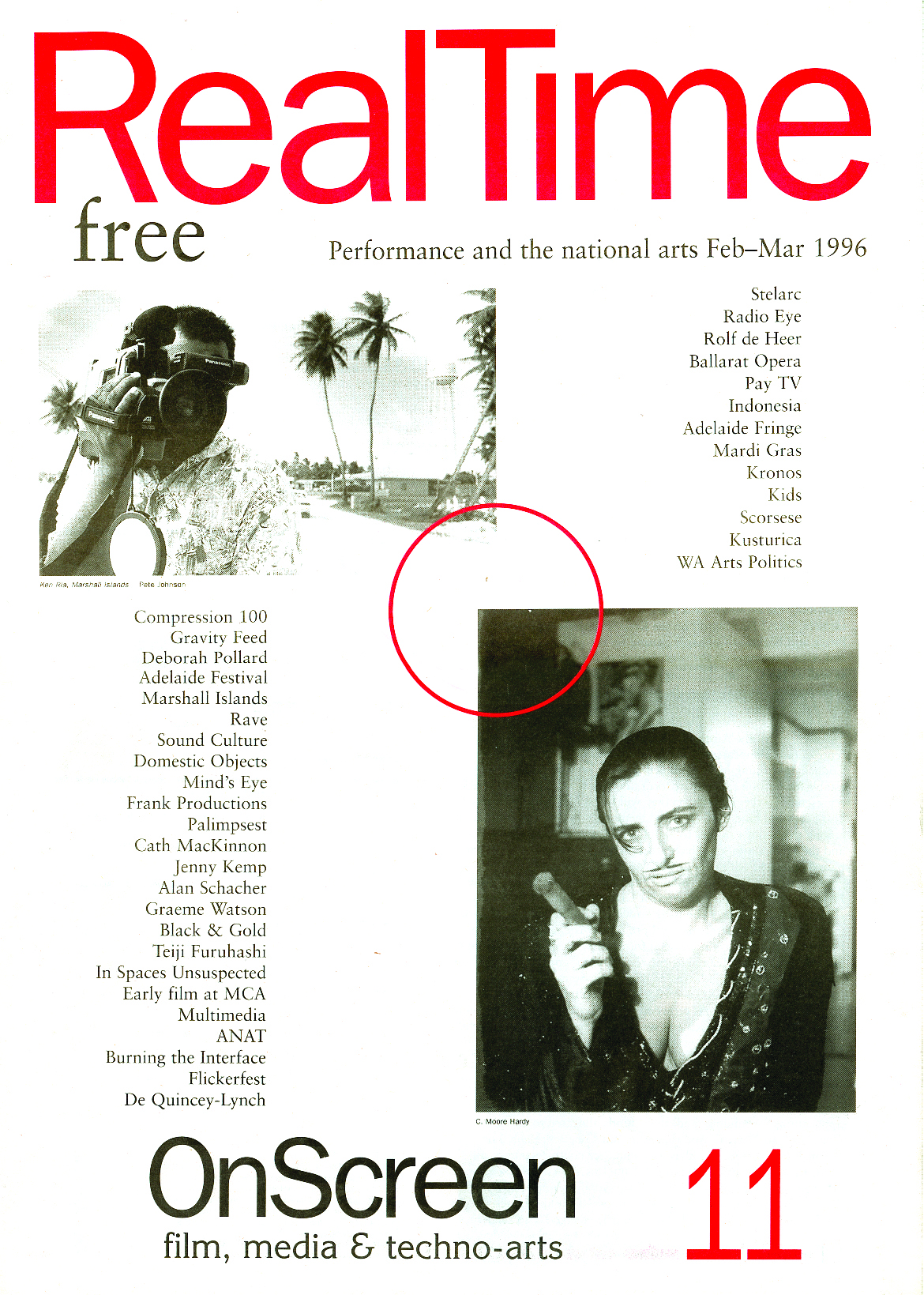
Book review – Feminist Theaters in the USA: Staging Women’s Experience, Charlotte Canning, Routledge 1996
RealTime Issue 11, February – March 1996
Feminist Theaters in the USA: Staging Women’s Experience
Charlotte Canning, Routledge 1996
Confronted on the cover with the growling faces and bared claws of five women acting, I wonder what is in store inside. A quick flick reveals few photos but there is a caption for the cover image—Women’s Theatre Collective presents Sacrifices: A Fable About the Women’s Movement. And in those words is told a story or two about this book which is a survey of the American feminist theatre movement compiled from interviews. The documentary evidence provides a readable account of the many small and intense groups formed as a result of the women’s movement in the 1970s, covering not dissimilar ground to Peta Tait’s book Original Women’s Theatre which is quoted by Canning—a significant first for an Australian theatre academic to be acknowledged in the US.
Its primary contention is that feminist theatre is drawn from women’s experience, and reflects and affirms women’s experience to its audience. Instead of problematising the idea of authenticity or the category of experience, parts of the book sound like the confessional forums of Oprah Winfrey with an American privileging of the personal voice: “I remember feeling totally affirmed as a woman…”. But how can the primary interest of all the interviews be experience? What about style, passion, aesthetics, theatricality, history, performance processes, the language or theatre itself? For anyone interested in those questions, the book provides little access—the index is mostly a list of shows and names, such as the “Women’s International Terrorist Conspiracy from Hell—acronym WITCH” and the only general categories are ‘collectives’, ‘consciousness-raising’, ‘festivals’, ‘oral history’, ‘transformations’. And there lies another story which makes it seem ‘all wrong’ to praise, and not re-examine, the existence of an “It’s All Right to Be Woman” theatre.
–






